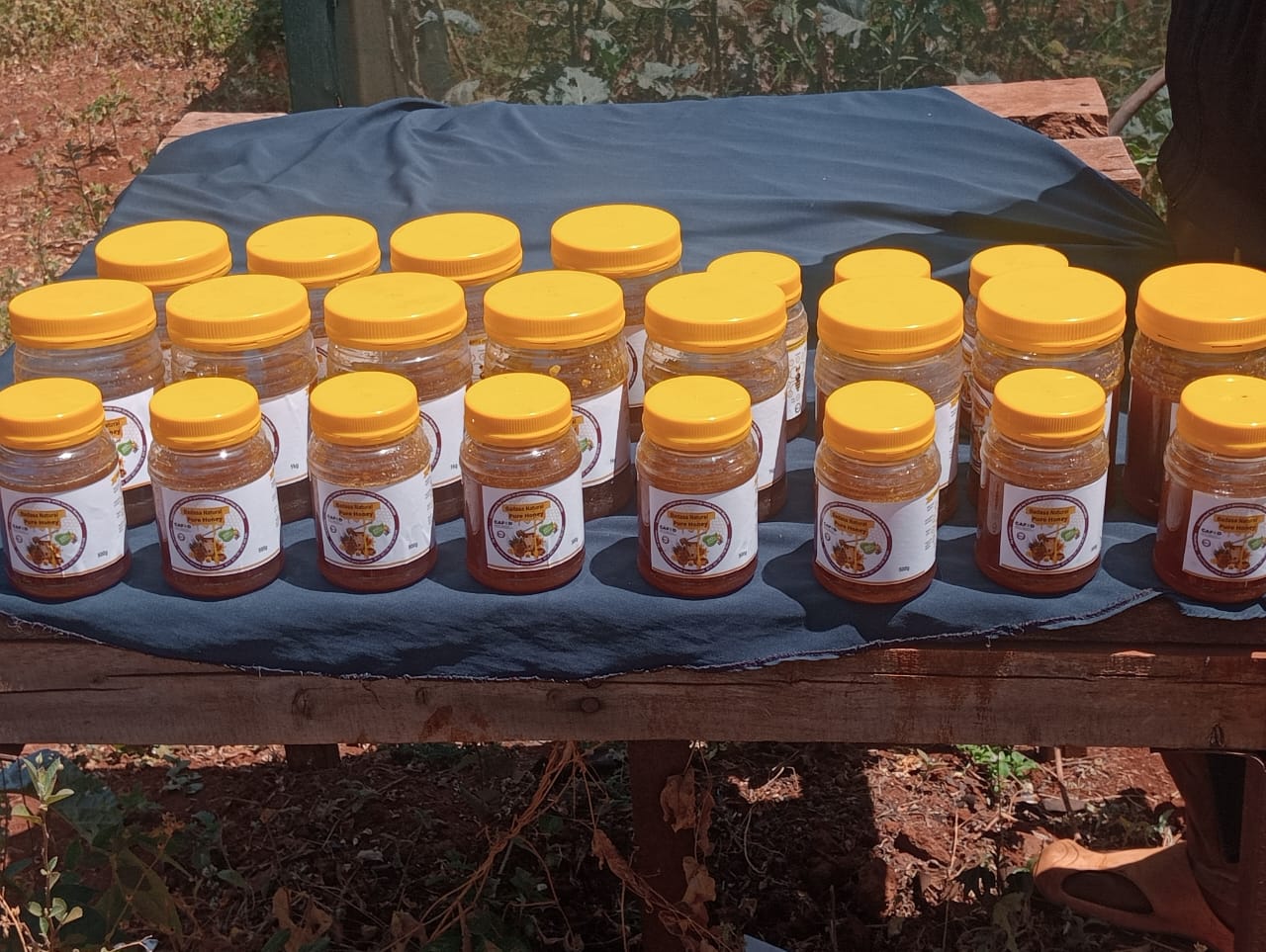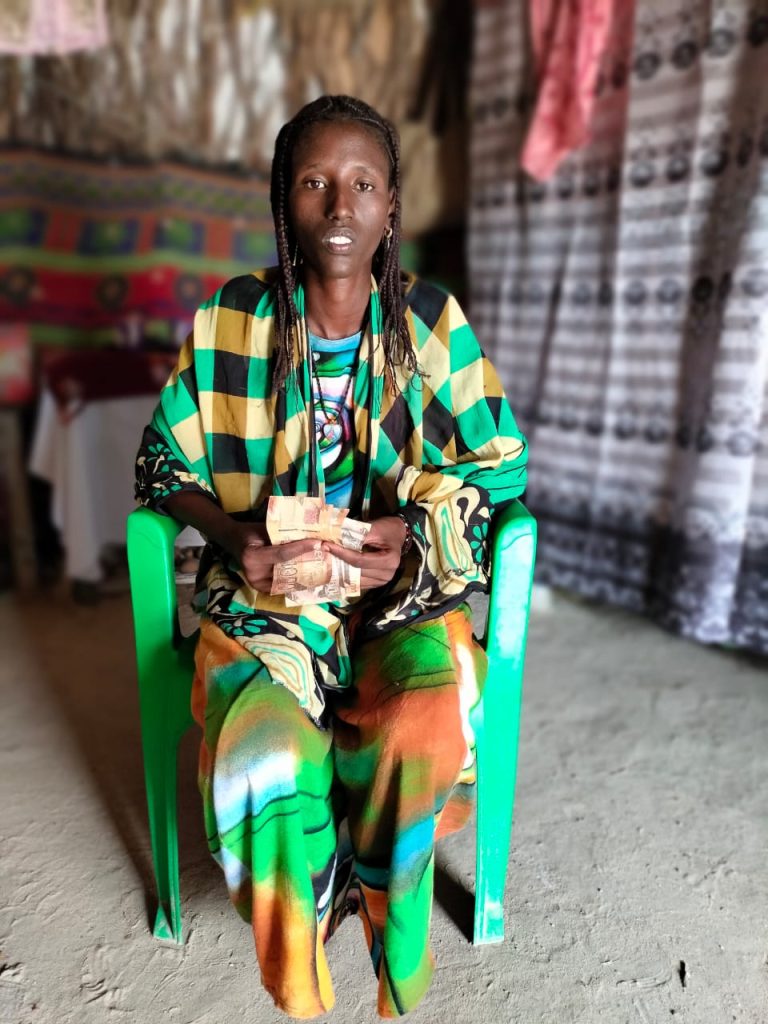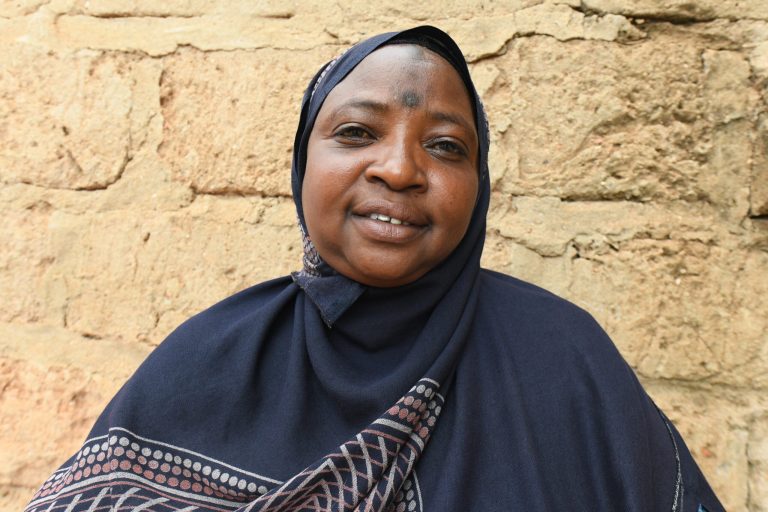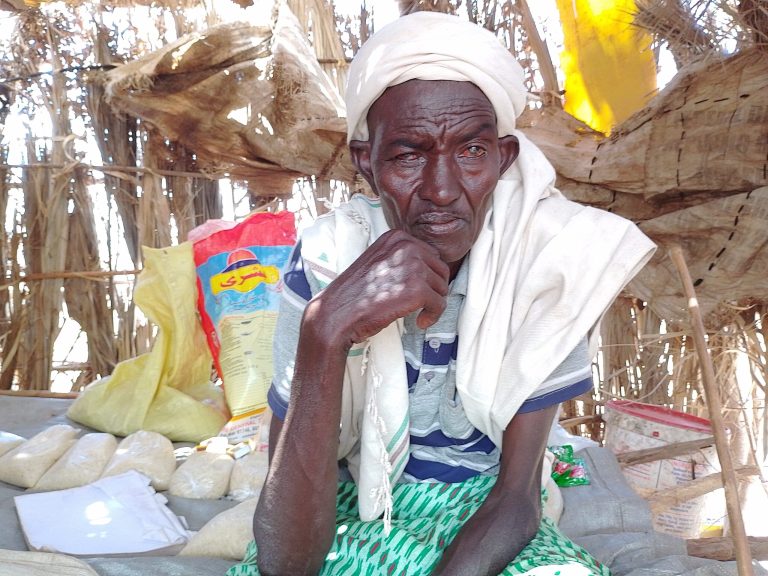In the arid landscapes of Marsabit County, where pastoralism has been the backbone of livelihoods for generations, climate change and recurrent droughts have pushed communities to the brink. Traditional livestock farming, once a reliable source of sustenance, has become increasingly vulnerable to the harsh realities of environmental degradation. Amid these challenges, communities are constantly looking for alternative solutions including diversifying their livelihoods through agriculture, poultry, and bee-keeping.
The training we received on hive management, honey harvesting, and market strategies, felt like we were being handed the keys to a new future.
Molu Arero
Caritas Marsabit, in collaboration with the Catholic Agency for Overseas Development (CAFOD), has been at the forefront of this shift through its sustainable livelihoods projects one of which is a three-year Resilient Livelihoods Project. This initiative seeks to empower drought-affected communities with sustainable alternatives to traditional livelihoods, focusing on food security, good governance, and resilience-building. Among its most impactful interventions is the introduction of beekeeping to dominantly pastoralist communities.
For Molu Arero, a 50-year-old resident of Badasa in Marsabit County, the journey from struggling pastoralist to thriving beekeeper has been nothing short of life-changing.
“Before Caritas Marsabit came into our lives, we were at the mercy of prolonged droughts,” Molu recalls. “Our livestock perished, and crop yields were dismal. Conflicts over dwindling resources only made things worse. I had to abandon livestock farming entirely, but even agriculture was becoming unsustainable.”
Recognizing the dire need for alternative livelihoods, Caritas Marsabit introduced Molu and his village members to beekeeping – an activity well-suited to Marsabit’s climate and landscape. Through comprehensive capacity-building sessions, Caritas provided beehives, protective gear, and practical skills on modern apiculture practices.
“Caritas didn’t just give us equipment; they taught us how to make beekeeping a business,” Molu shares. “The training we received on hive management, honey harvesting, and even market strategies, felt like we were being handed the keys to a new future.”

The impact of this intervention was immediate and profound. Over the past two and a half years, favorable rainfall and improved beekeeping techniques have led to a significant increase in honey production.
“I recently harvested three hives, each giving me at least 15 kilograms of honey,” Molu says proudly. “I sell this honey at Ksh 1,000 per liter, earning around Ksh 15,000 per harvest. Since I started, I have made over Ksh 80,000 from honey sales alone.”
This income has been a game-changer for Molu’s family of eight. “The money I earn from honey helps pay my children’s school fees and cover household expenses. Beekeeping has brought stability to our lives that we never thought possible.”
Challenges in the Sweet Business
Despite these successes, Molu faces ongoing challenges common among new beekeepers in pastoralist regions.
“Hawking honey from home to town takes a lot of time, and we lack proper containers for storage,” he explains. “Brokers also exploit us by offering low prices, only to sell at huge profits.”
However, Molu remains optimistic. “I plan to invest in small containers for better packaging. This will allow me to sell in smaller quantities, meet diverse customer needs, and increase my profit margins.”
A Ripple Effect Across the Community
Molu’s success has inspired many in his community to view beekeeping as more than just a supplementary activity – it’s a resilient livelihood strategy. The Resilient Livelihoods Project doesn’t just stop at honey production; it fosters a culture of entrepreneurship, environmental stewardship, and community resilience.
“Caritas Marsabit has walked with us every step of the way,” Molu reflects. “They’ve given us the tools and knowledge to transform our lives. Today, we are no longer just pastoralists; we are beekeepers, business owners, and, most importantly, resilient members of our community.”
The Future is Buzzing
As Marsabit grapples with climate change’s impacts, stories like Molu Arero’s stand as powerful testimonies of how innovative, sustainable practices can transform lives. Through beekeeping, communities are not just surviving – thriving, buzzing with hope and resilience for a better tomorrow.






